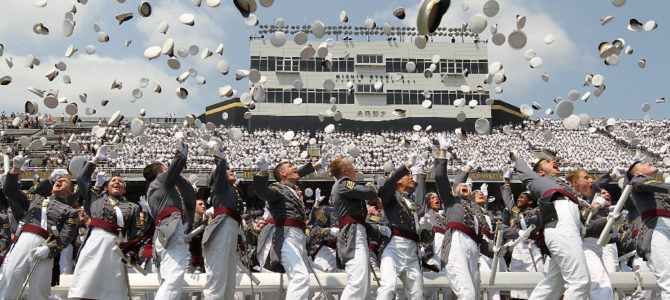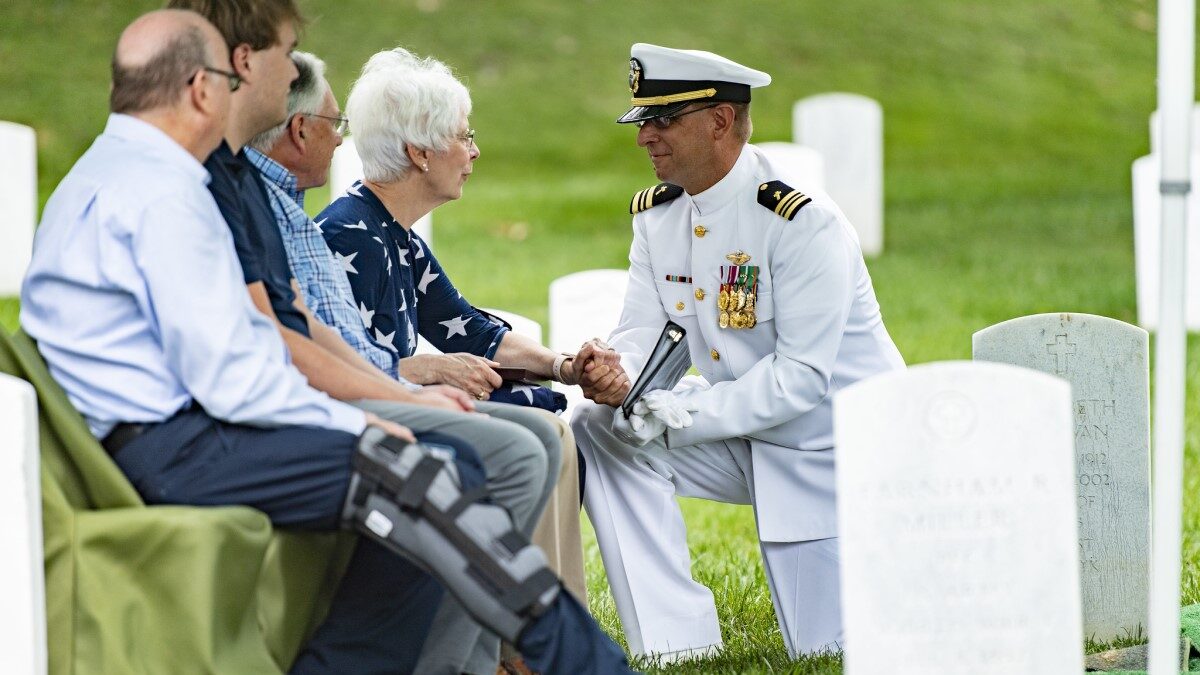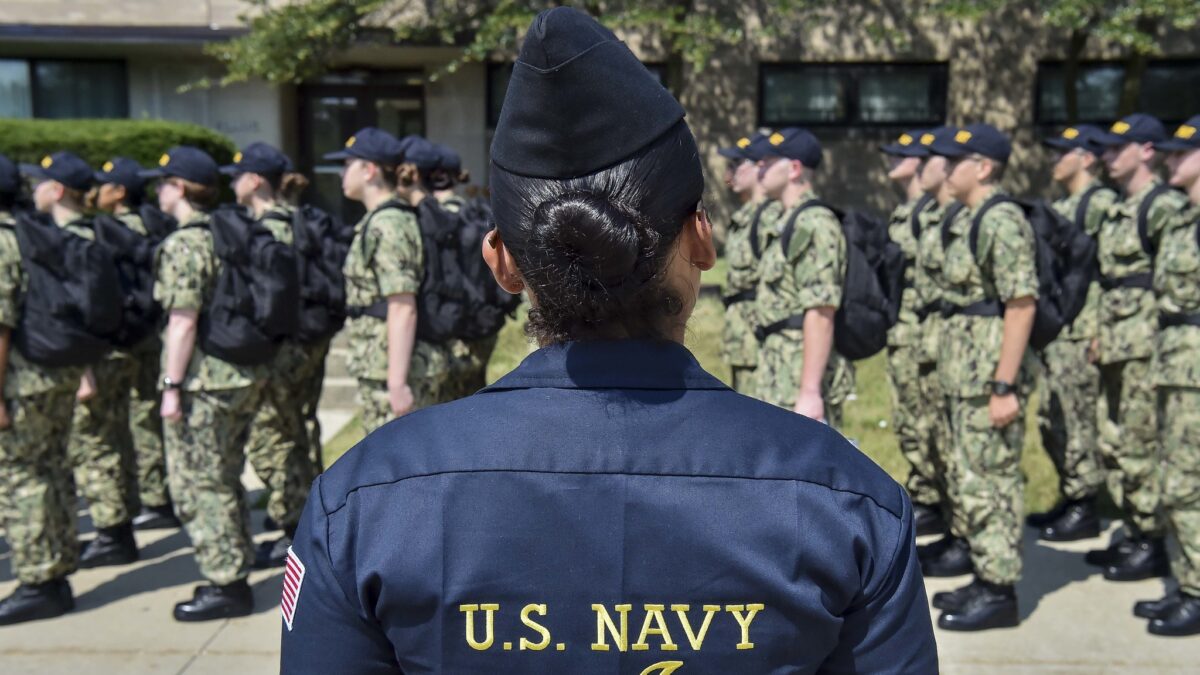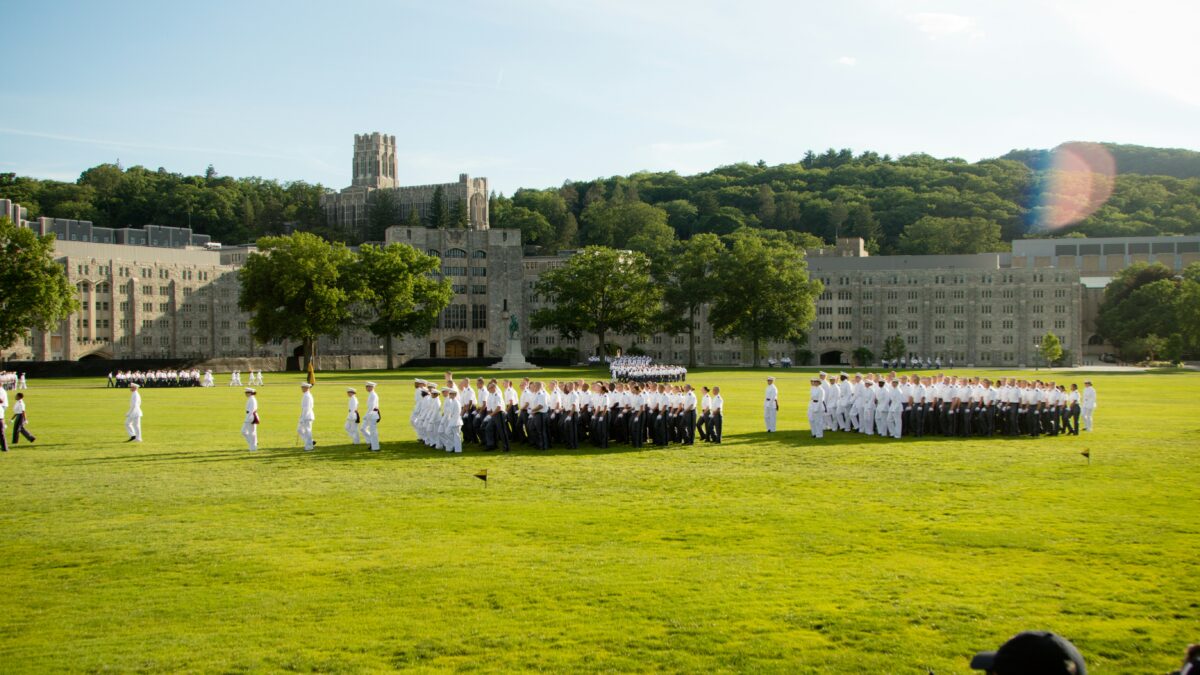
The military world and military academies—I’m a tenured civilian professor of English at the U.S. Naval Academy in Annapolis—were rocked by an October 11 “open letter” exposing the rotten underbelly of our sister academy at West Point, the U.S. Military Academy.
The letter was penned by Robert Heffington, an Army officer and West Point graduate who taught there for several years before retiring. Only his retirement made it possible for him to publish the letter, since officers in uniform cannot publicly disagree with superiors. Within 24 hours, West Point Superintendent Lt. Gen. Robert L. Caslan Jr., head of the administration Heffington holds responsible for its deficiencies, responded by evoking the “thousands of graduates who sacrifice and serve honorably every day.”
Heffington’s letter is a scorcher. It pulls no punches and concludes it’s questionable whether West Point, founded in 1802, “should ever remain open.” Heffington’s “BLUF,” Bottom Line Up Front: “First and foremost, standards at West Point are nonexistent. They exist on paper, but nowhere else. The senior administration at West Point inexplicably refuses to enforce West Point’s publicly touted high standards on cadets, and, having picked up on this, cadets refuse to enforce standards on each other.” He goes on: “The Superintendent refuses to enforce admissions standards or the cadet Honor Code, the Dean refuses to enforce academic standards, and the Commandant refuses to enforce standards of conduct and discipline.”
Heffington notes that students are admitted to play Division I football, which degrades academics: “we routinely admit athletes with ACT scores in the mid-teens across the board. I have personally taught cadets who are borderline illiterate and cannot read simple passages from the assigned textbooks.” Faculty members who object are silenced, he says.
To this, I say “Amen, brother.” Heffington’s letter caused me personal joy and professional agony. I’ve been making a number of the same points about Annapolis, an essentially identical taxpayer-funded institution, for the last several decades, earning repeated salvos of our administration’s ire and attempts to silence me. (West Point has few civilian professors, and no tenured ones.) So it was gratifying to hear someone else say the same things about our sister institution, with more vitriol than I usually employ.
So much needs to change with our institutions, yet there no signs of any changes even being contemplated. This is bad news for the taxpayers who are footing the bill and depend on them for one-fifth of the new officer pool. It’s also bad news for the disaffected, cynical students who have lost faith in the system. I think Heffington saw the cynicism without understanding its source. I think I do.
The Reasons to Prefer a Military Academy Are Few
Most upper-class students at service academies have lost faith in the system, because it’s based on lies. First, these places produce about one new officer in five nowadays, far fewer than their glory days. Most other officers come from Reserve Officers’ Training Corps programs, Officer Candidate School, or direct commissions. West Point (USMA) produces about half the number of officers of Army ROTC. Service academy graduates cost taxpayers about half a million dollars each plus wrap-around health care and so on, four times what the average ROTC officer costs and eight times what OCS costs.
That’s right: you can go to a civilian school ROTC for four years, put on a uniform a day or two a week, party as you like, have sex when you want (sex is forbidden at the academies), major in what you want, graduate, and serve alongside academy graduates—and no data show you’ll be a worse officer. The students know this because they all have iPhones and Google.
The defenders of the academies fall back on that tired cliché of calling them “national treasures.” Up to World War II, they probably were, because that’s where almost all officers came from. We need officers, so if that’s their source, the source is a “treasure.” Only it turned out that officers can come from other sources! So it’s simply not true that all the pointless and infuriating things you have to do at the academies are necessary for being an officer, because 80 percent of officers don’t do these things and are just as good.
Defenders of the academies, invariably themselves graduates who got a college education at taxpayer expense, say they “set the tone” for the Army, Navy, Air Force, or Coast Guard. There’s no evidence of this, and in any case I hope it’s not true, because their tone is one of deep disillusionment.
Hate to Break It, But We’re Not the ‘Best and Brightest’
Another of the big lies, as Heffington shows, is the assertion that military academy students are the “best and the brightest.” I can’t tell whether the military brass really have no clue, or this is just hype to keep the tax dollars flowing and make the students feel it’s worth it. In fact, our SAT scores are about 100 points per test lower than Ivy-level schools, and the spread between upper and lower levels much greater. About 20 percent of our class consists of students recruited for athletics or given preferential admission to achieve racial goals (meaning non-white), and cannot get in even at the low level of SAT scores of 600 on each test with As and Bs in high school.
Not a problem; we send them at taxpayer expense to the relevant prep school, where nine months of a 13th grade are supposed to remediate what may be intrinsic mental slowness or decades of poor education. Typically it doesn’t, and these students fill our pre-college classes in English and math and fail to graduate at higher percentages. The truly gifted students (we have some) realize they’ve been sold a bill of goods. We have no magic chemical test for good “leaders” to make up for academic deficiencies. We don’t even require an interview for admission. Come to my classes to see how little “wow” factor many have.
Another lie is the wild exaggeration of our selectivity. I’ve been on our Admissions Board, so I have expertise Heffington doesn’t. We claim to get about 20,000 applicants, but define “applicant” as no other college does, by including the 7,500 high school juniors who want to come to our six-day summer seminar (only 2,500 come) and recently, all Navy ROTC applicants to any institution, as well as stubs of applications where a kid was convinced to enter his or her name and address and little more.
When I was on the Admissions Board, we considered about 4,500 applications for about 1,800 admits. That’s not the 7 to 8 percent “most selective” statistics the brass continue to report to U.S. News and World Report and the U.S. Department of Education. The students see the disappointing quality of those around them and begin to figure out that somehow these cannot be the “best and the brightest.”
Many Of Our Key Promises Are Broken
Because we admit to serve racial goals and to fill our teams, and because higher graduation rates make us look better, we aren’t about to throw anybody out. So what Heffington says is true: we “remediate” honor offenses nowadays, inability to pass the Physical Readiness Training, and just about everything else. Faculty members have also given up thinking that reporting plagiarism will result in any meaningful action.
Another set of lies is in the way that a policy of “no sex” has survived from the days when it made sense, back when we were all male with no out gays. Now we have one-third women, gay students, and, briefly, transsexual students. They all live in the same dormitory and are full of hormones. Of course they’re going to be having sex. They know what other college students do, and they know they’re not on ships (which also have problems with sex), so the lies the administration tells them about how this is like being deployed don’t impress them.
Finally, the officers they are supposed to emulate are fairly clueless and, according to the students, generally not very good role models. They aren’t here long enough to figure out what’s what, and because they are in the students’ chain of command, the students don’t talk freely with them. By contrast, I have had countless hall and office no-holds-barred conversations with midshipmen over three decades.
What the officers say to students frequently makes no sense: the training staff pitches the same full-bore fit at small infractions as at large. Plebes are told they have “just killed a platoon of Marines” if their uniform is out of reg. They know it isn’t true, so they tune out the adults shouting at them.
We’re All Going Through the Motions
The only reason for the military to get hundreds of millions of taxpayer dollars to run stand-alone colleges with standard classes is that these classes are somehow different. People on the outside think we’re Hogwarts. We aren’t. We teach the same subjects as down the street at the University of Maryland. Worse, the cadets and midshipmen are sleep-deprived and unwilling students, except for the few dozen top achievers who are candidates for coveted national scholarships. As Heffington notes, they can re-take an F for a higher grade in the summer—at taxpayer expense. Still, with grade inflation, that rarely happens.
The vast majority are going through the motions, sleeping in class, memorizing, then mind-dumping largely technical material they forget anyway and whose utility has never been shown. (Electrical engineering for pilots, SEALs, or Marine Corps? Nonsense.) How do I know? They tell me. They won’t tell an 0-5, or anybody wearing a uniform, who can punish them for it.
I have to go to great lengths to get them involved in English, a subject most freshmen (plebes) have no interest in. Two semesters are required, which is good thing because typically their writing is terrible and they cannot organize their ideas coherently. But because the classes are mandatory and they came to be in the military, most are resistant. I have to win them over. We do things they like, such as push-ups and jumping up and down every 20 minutes to keep them awake. This is what it takes. Remember: I’ve been here more than three decades.
Do we teach them leadership? Well, we have courses called that, but at best these are intro psychology classes, and the high numbers of U.S. national academy graduates relieved of command in recent years or caught up in the Fat Leonard scandal suggests that our brand of “leadership” isn’t effective. Leadership, whatever that is, isn’t learned in a classroom.
The service academies are now the vanity projects of the military brass, not viable contributions to US. defense. They’re like all those military jets the current cabinet members love to use: flashy, expensive, and lots of fun. The superintendent lives in a Victorian mansion complete with waitstaff and has a reserved parking spot when he has to go two buildings over. The institution is the staging ground for their retirement ceremonies and funerals, and countless empty colloquia all based around the “leadership” we purport to teach but don’t.
It’s Basically a Military Disneyland
What does make us different from another college is the wrap-around control of students’ lives that leaves them unmotivated and mad, Mickey Mouse regulations that change from regime to regime, are applied randomly, and have no proven officer development benefits. The students realize they are cast members in a military Disneyland run for the benefit of the brass and the tourists, not the taxpayers who pay their way and want better-than-average officers. This is why they dress sloppily, answer back, and seem to take no pride in what they do—all the things Heffington saw as a direct affront to his officership.
For me, one of the most unsettling developments of the military in recent decades has been its courting by politicians to further their own personal agendas. A horrifying example was the disgusting commencement speech by Vice President Mike Pence at our last graduation repeatedly telling the military that it was better than the civilians it defends, and his attempt to position President Trump as “the best friend the military ever had.” Who doesn’t support our military? This is creating enemies that don’t exist.
The military is supposed to be apolitical. It’s a tool, not part of a specific political party. We need to do what the British did with Sandhurst: turn undergraduate education over to the ROTC programs and colleges, and use our beautiful buildings (and West Point’s incomparable location on the Hudson) for military graduate courses.
Our service academies are anachronisms trying to pretend they aren’t. The students have caught on. The administration hasn’t, and never will, because then they’d lose their taxpayer-sponsored country clubs. Defense? Nah. It’s all about show. The students, and the taxpayers, pay the price.
Correction: This article has been updated to reflect the fact that Virginia Tech ROTC cadets wear uniforms daily.









